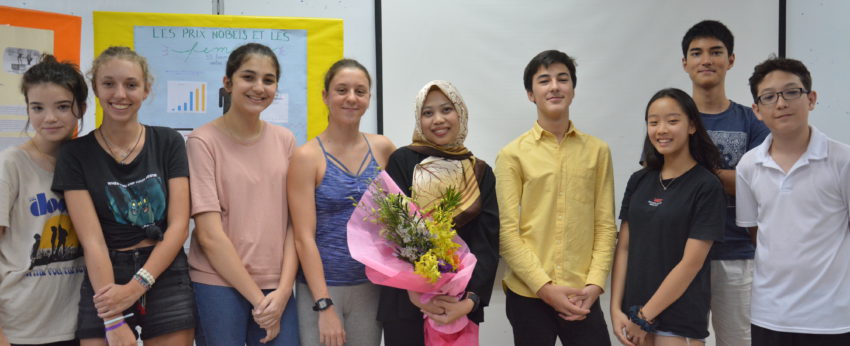At the beginning of the school year, some 11th graders from group B wished to understand why so few women around the world win a Nobel Prize in Physics while they are well represented in other areas of study.
They interviewed 6th and 7th graders about gender equality, compared girls’ and boys’ abilities in various fields such as physical resistance, logics, mathematics, house chores… In the end, they ruled out biological determinism and wondered what kind of a role school played in this issue.
Pupils are expected to choose their future fields of study in year 11. This project was aimed at questioning our prejudices and show that all fields are opened to both men and women.
My role as a sciences teacher is to make girls wish to pursue scientific studies and ponder about stereotypes and prejudices so that girls and boys may soon be able to overcome them.
Women living in a stereotype-ridden environment tend to stick to these: the impact of stereotypes on performances comes from their assimilation.
Stereotypes and prejudices about gender equality die hard.
This reflection will be used as a support and a tool to address the choice of a future career, for it shows how women self-censor their own ambitions.
To conclude that project, Dr Zati Hakim Azizul Hasan (Senior Lecturer, Department of Artificial Intelligence, Faculty of Computer Science and Technology, University of Malaya, Kuala Lumpur) honoured 11th graders from group B with her presence: we were pleased to have her share with us her experience as a Malaysian woman recognised for her scientific achievements.
Chloé MANSOURI
Science teacher



